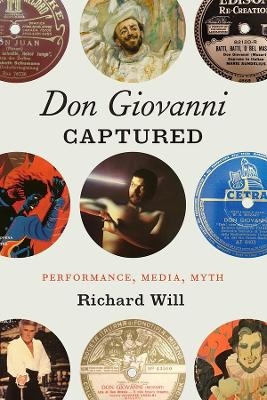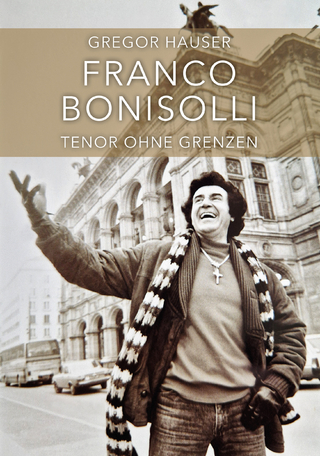
"Don Giovanni" Captured
Performance, Media, Myth
Seiten
2022
University of Chicago Press (Verlag)
978-0-226-81541-1 (ISBN)
University of Chicago Press (Verlag)
978-0-226-81541-1 (ISBN)
“Don Giovanni” Captured considers the life of a single opera, engaging with the entire history of its recorded performance.
Mozart’s opera Don Giovanni has long inspired myths about eros and masculinity. Over time, its performance history has revealed a growing trend toward critique—an increasing effort on the part of performers and directors to highlight the violence and predatoriness of the libertine central character, alongside the suffering and resilience of his female victims.
In “Don Giovanni” Captured, Richard Will sets out to analyze more than a century’s worth of recorded performances of the opera, tracing the ways it has changed from one performance to another and from one generation to the next. Will consults audio recordings, starting with wax cylinders and 78s, as well as video recordings, including DVDs, films, and streaming videos. As Will argues, recordings and other media shape our experience of opera as much as live performance does. Seen as a historical record, opera recordings are also a potent reminder of the refusal of works such as Don Giovanni to sit still. By choosing a work with such a rich and complex tradition of interpretation, Will helps us see Don Giovanni as a standard-bearer for evolving ideas about desire and power, both on and off the stage.
Mozart’s opera Don Giovanni has long inspired myths about eros and masculinity. Over time, its performance history has revealed a growing trend toward critique—an increasing effort on the part of performers and directors to highlight the violence and predatoriness of the libertine central character, alongside the suffering and resilience of his female victims.
In “Don Giovanni” Captured, Richard Will sets out to analyze more than a century’s worth of recorded performances of the opera, tracing the ways it has changed from one performance to another and from one generation to the next. Will consults audio recordings, starting with wax cylinders and 78s, as well as video recordings, including DVDs, films, and streaming videos. As Will argues, recordings and other media shape our experience of opera as much as live performance does. Seen as a historical record, opera recordings are also a potent reminder of the refusal of works such as Don Giovanni to sit still. By choosing a work with such a rich and complex tradition of interpretation, Will helps us see Don Giovanni as a standard-bearer for evolving ideas about desire and power, both on and off the stage.
Richard Will is professor of music at the University of Virginia. His publications include The Characteristic Symphony in the Age of Haydn and Beethoven and Engaging Haydn: Culture, Context, and Criticism.
Note to Readers
List of Tables
List of Figures
Introduction
Part I Clouds of Feeling: Excerpt Audio Recordings
1 Imagining Excerpts
2 Rhetorics of Seduction
3 Demons and Dandies
4 All Too Human
Part II Invented Works: Complete Audio Recordings
5 The Virtual Stage
6 Cruel Laughter
7 Dancing in Time
Part III Partial Visions: Video Recordings
8 Zooming In, Gazing Back
9 Trauma Retold
10 Libertines Punished
Acknowledgments
Notes
Discography
Videography
Bibliography
Index
| Erscheinungsdatum | 16.05.2022 |
|---|---|
| Reihe/Serie | Opera Lab: Explorations in History, Technology, and Performance |
| Zusatzinfo | 34 halftones, 22 line drawings, 11 tables |
| Sprache | englisch |
| Maße | 152 x 229 mm |
| Gewicht | 513 g |
| Themenwelt | Kunst / Musik / Theater ► Musik ► Klassik / Oper / Musical |
| Kunst / Musik / Theater ► Musik ► Musikgeschichte | |
| ISBN-10 | 0-226-81541-2 / 0226815412 |
| ISBN-13 | 978-0-226-81541-1 / 9780226815411 |
| Zustand | Neuware |
| Haben Sie eine Frage zum Produkt? |
Mehr entdecken
aus dem Bereich
aus dem Bereich


